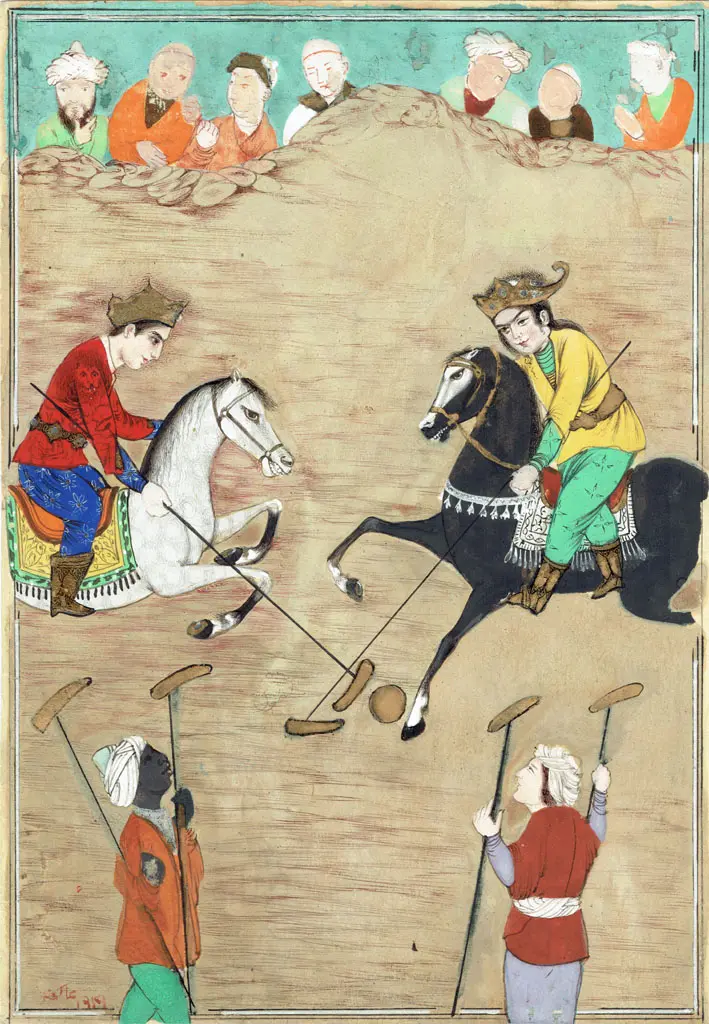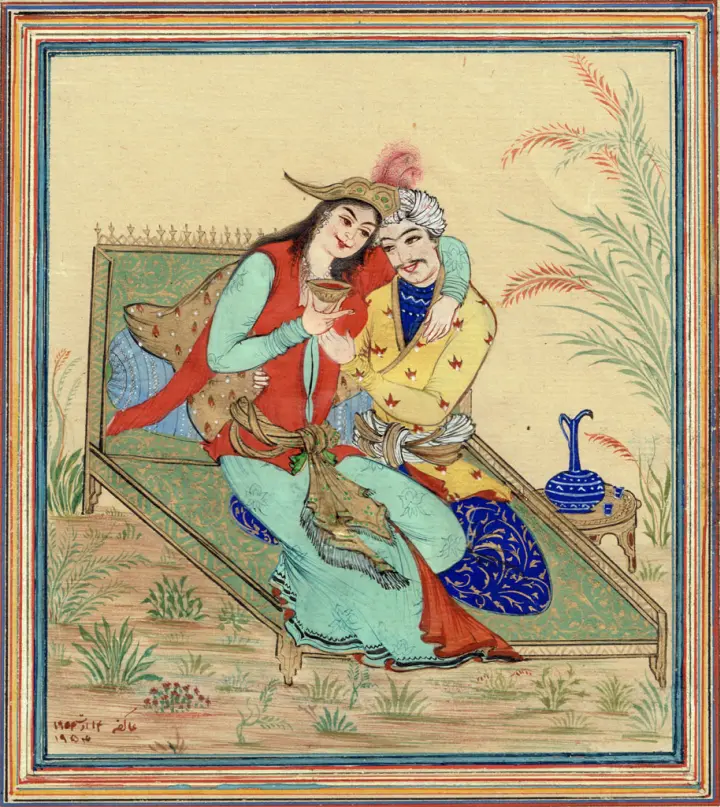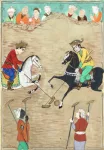
At the time when Islam had not yet introduced polygamy in the fertile fields of proud Persia, and the moderate consumption of intoxicating wine had not yet been declared a vice, Prince Rostam lived before whom the mountains trembled.
Also the women were considered more in those days than they hide today under the black veils. They fought with a weapon in their hands and were reluctant to let themselves be defeated by men in a game of polo. As a sign of their power, they wore trousers during sports and fights and voted for a long time before they decided on the father of their children.
When Rostam had won a fight, he organized a horse race. His son Siawosch rode a pitch-black stallion that only he could tame. The race lasted from morning until the sun was in the middle of the azure sky. None of the fifty knights could defeat Siawosch.
Then a snow-white steed came chasing through the dark forest in a cloud of dust; a youthful, veiled figure sat on the horse. According to the ancient custom of Persia, Siawosch called out to the unknown rider: “State your name and your origin! Then the veiled knight answered in a dark voice, “Either I will fall and die under the hooves of the horses, in which case you will read my name and origin on my bracelet, or I will defeat you, in which case you will see me unveiled, and I will give my name.

When the race with the unknown knight through the wide plain began, one could see, as far as the eye could see, the two horses chasing along side by side. None of the knights was able to defeat the other – until finally Siawosch gave his black stallion the spurs shortly before the finish and gained a small lead. Desperately, the other rider threw himself from the horse. The cap and veil slipped from his dainty head, black hair fell on his shoulders, and a girl’s face, blood-red from effort and of incomparable beauty, showed itself to the admiring eyes. Full of astonishment and happiness Siawosch jumped from his stallion and asked the girl who she was.
Then the girl threw her golden ball at him and shouted, “No one has ever dared to defeat me. You shall possess this golden orb and with it the heart of the invincible Homa, daughter of the king.”
It was the biggest wedding in the country. Rostam gave the lovers a magic ottoman. If they both rested on it, one command was enough – and the ottoman carried her all over the world so that they could see all her glories.
Text and pictures: Akefeh Monchi-Zadeh
This fairy tale appeared in 1956 in the GDR cultural magazine “Das Magazin”

